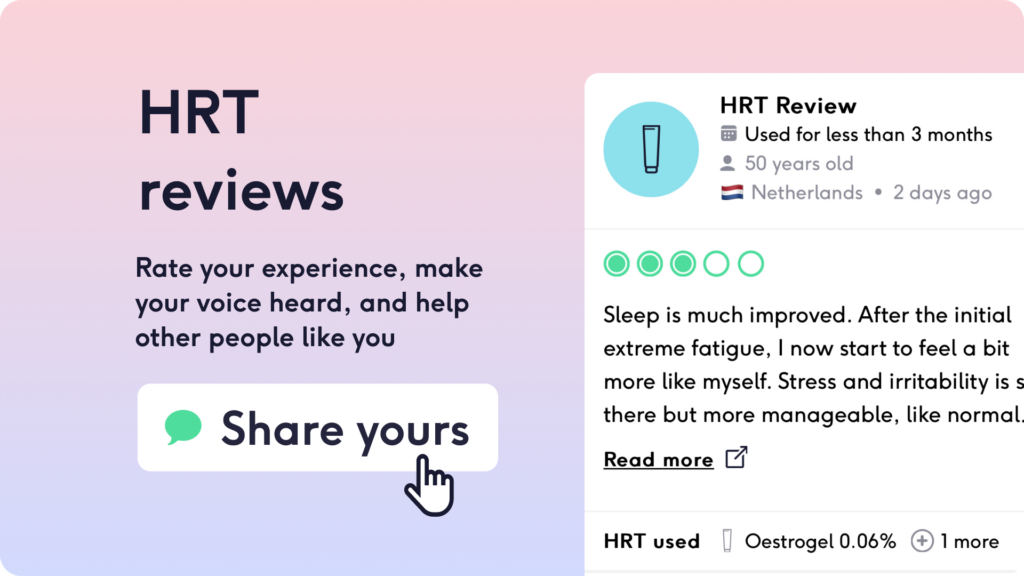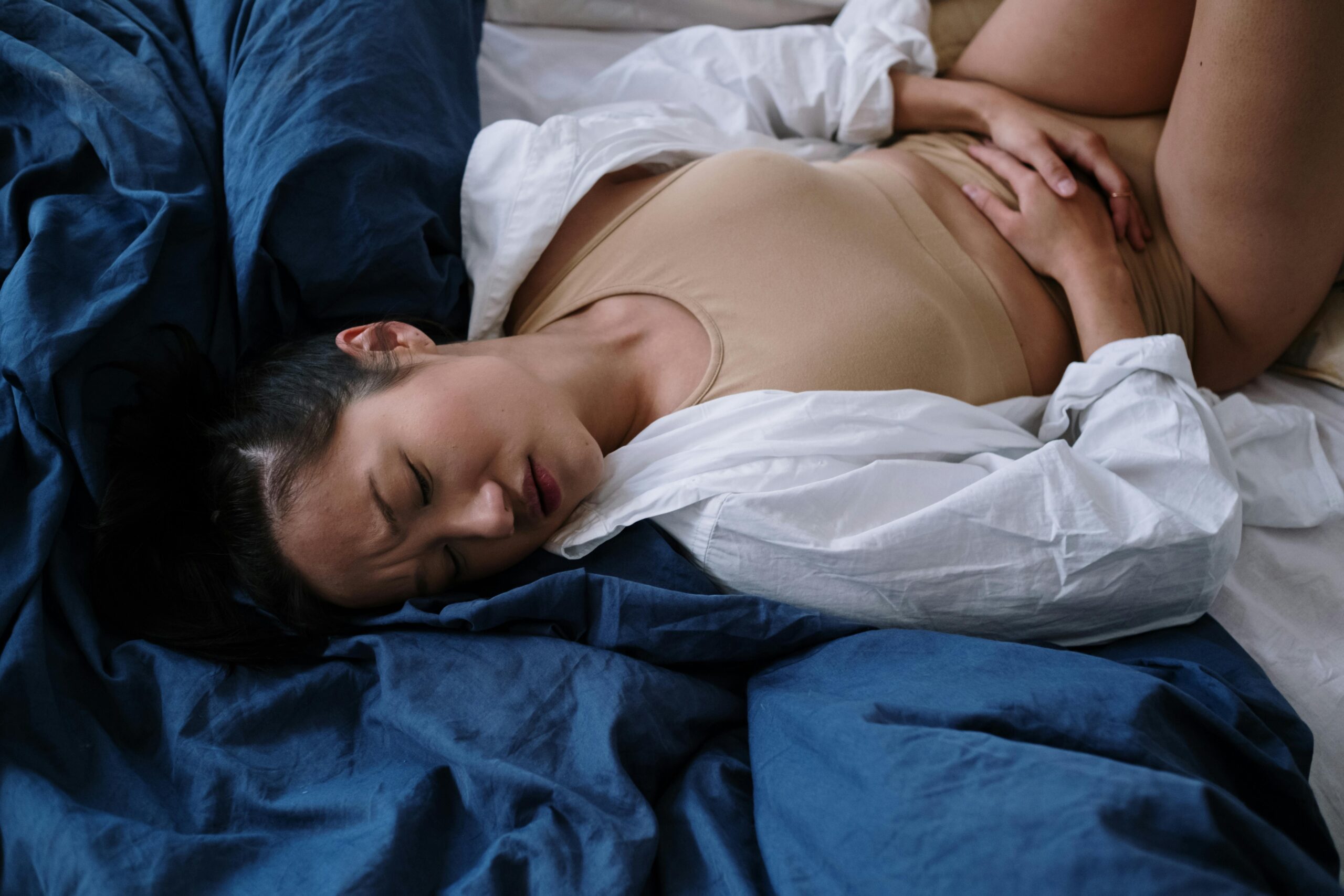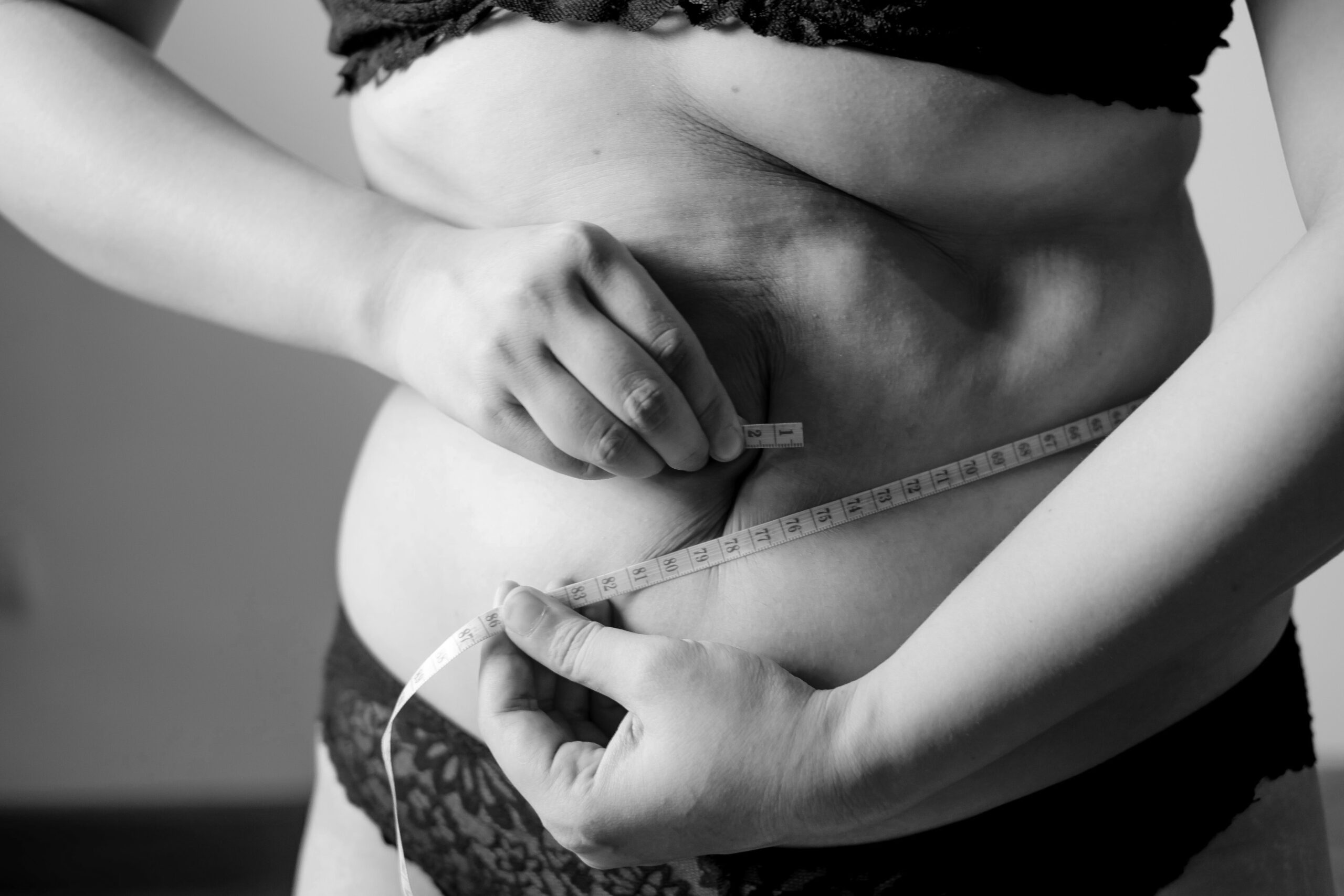
Menopause and contraception in your 40s and 50s
In this article
What's the lowdown?
If you are in your 40s and 50s, you are still at risk of getting pregnant!
Contraception does not affect when the menopause occurs, but it can mask its symptoms
Contraception can be used alongside hormone replacement therapy (HRT), or as an alternative to HRT to help with the symptoms of menopause
Contraception methods like the Mirena coil can be used as part of HRT alongside oestrogen replacement
We have a rising number of women and people with vaginas aged over 45 in the UK (11 million in 2011), therefore there needs to be a conversation surrounding perimenopause, menopause and contraception. You may be thinking: “why would I need to think about contraception in my 40’s and 50’s”? The answer starts with what the menopause is, and how it works.
The menopause is medically defined as when a woman, or person with a uterus, over the age of 45 has not had a period for 12 months. The perimenopause refers to the time during which your body makes the natural transition to menopause, which can last anywhere from a few months to 12 years, with an average of 4 years.
As oestrogen levels decline during perimenopause, it is normal to experience physical and emotional changes. Lower oestrogen levels can cause the vagina to lose lubrication, leading to vaginal dryness and pain during sex. Other physical changes include hot flushes, night sweats, insomnia, headaches and urinary incontinence. Decreasing hormone levels can also cause emotional changes, such as irritability, sadness, anxiety, fatigue, difficulty concentrating and even aggressiveness. In fact, it can feel like you are in a constant state of premenstrual syndrome (PMS), which can be pretty emotionally exhausting.
The good news is, there are medical treatments that can safely reduce these side effects. Hormone replacement therapy (HRT) is used to replace the declining oestrogen and therefore help allievate symptoms of menopause. Lubricants, vaginal moisturizers, and vaginal oestrogen can ease symptoms associated with vaginal dryness.
However, contraception also plays a very important role for women in their 40s and 50s. Contraception is not only usedl to prevent pregnancy during this time, the synthetic hormones (if you use hormonal methods) can also ease multiple symptoms of the perimenopause.
Is contraception needed in your 40s and 50s?
Whilst men continue to produce sperm into old age, women have a finite number of eggs at birth and the quantity declines with each menstrual cycle. When women reach their 40’s and 50’s, they will, at some point, stop menstruation and releasing eggs altogether, otherwise known as the menopause.
Within the UK population, the average age of the natural menopause is 51 years. However, changes to the menstrual cycle due to erratic hormone levels can occur for years before periods stop completely (the perimenopause).
It may be tempting to stop using contraception in your 40’s and 50’s with the assumption that your fertility has reduced to the point that you no longer need it. However, you still have a 10-20% chance of getting pregnant at this time in your life, and pregnancies that do occur after 40 years have a greater risk of problems for both mother and child. The result? You are advised to continue using contraception until you are menopausal. In reality this means you can safely stop contraception:
- Two years after your last period if you are aged 40 to 50
- One year after your last period if you are aged over 50
- Or if you are over the age of 55 when the natural loss of fertility can be assumed (pregnancy over the age of 55 is extremely rare even if women are still having periods)
Is your contraception masking symptoms of the menopause?
But this raises an important caveat. We know that contraception doesn’t cause earlier menopause or have any effect on its timeline, but what if the contraceptive you are using is masking the symptoms of your last period? How do you know if you are menopausal while on contraception or birth control?
Women who use hormonal birth control (especially progestogen-only methods), may experience amenorrhoea (stopped periods)…..so how would you know if you had gone through menopause?
Firstly, doctors judge your symptoms, for example, hot flushes, night sweats, brain fog or irritability which can help them suspect menopause.
Secondly, by measuring the hormone levels in the blood with a simple blood test (expecting follicle stimulating hormone (FSH) levels to rise) is one option for people using progestogen-only methods over the age of 50 who are not having periods. In this case, if the FSH levels are raised, women can stop contraception 1 year later without need to retest.
Those using combined hormonal contraception (pills, patch or vaginal ring) or HRT should not have hormonal testing as the medications suppress levels of hormones so a test does not give any accurate information. Those using non-hormonal contraception will experience the symptoms and signs of menopause in the same way as someone not using any contraception and therefore do not need blood tests for diagnosis.
So why do we talk so much about the importance of contraception for women in their 40s and 50s? Well, the fact is, contraception has uses far beyond birth control! For women in their 40s and 50s especially, the relief from the symptoms of the menopause, along with therapeutic benefits in relation to health and disease, mean contraception is a pivotal part of the women’s health conversation.
As women age they have an increased risk of some health conditions (which we’ll discuss in a moment). This means that choosing appropriate contraception requires an understanding of the health benefits and risks of each method, and the non-contraceptive advantages and disadvantages for this age group. Below are the three main uses of contraception for women in their 40s and 50s.
Contraception as…contraception!
An unplanned pregnancy at an older age can present difficult choices. Choosing your contraceptive method needs to be considered carefully, taking into account the associated health risks.
Above 50, there is a concern regarding the risks associated with combined hormonal contraception (due to the increased background risk of cardiovascular disease, obesity, and breast and gynaecological cancers at this age) and so switching to a safer alternative is advised. Use of the contraceptive injection, including Sayana Press, is also associated with a small decrease in bone mineral density which can increase the risk of osteoporosis, a risk that increases as you get older anyway. Check out our guide to the injection for more info on this. Therefore, if you are over 40 and using the injection, you should be reviewed regularly to assess the benefits and risks. Those over 50 should consider alternative methods of contraception.
Some contraceptives can be continued for longer in this age group. Extended use of the hormonal coil (e.g. Mirena) until age 55 is supported if inserted at 45 years or older, and the copper coil can also be left in until menopause when inserted aged 40 or over.
Contraception as…menopause or perimenopause symptom control!
As earlier described, perimenopause brings along a series of erratic hormonal changes which can be very unpleasant for some: changing bleeding patterns, loss of libido, and vaginal dryness to name a few.
Combined hormonal contraception (pills, patch and vaginal ring), the hormonal coil and sometimes other progestogen-based methods (progestogen-only pills, the injection and implant) can reduce menstrual bleeding and pain, which may be particularly relevant for those over 40 who are perimenopausal.
The pill, patch or vaginal ring can be used in eligible women under 50 as an alternative to HRT for relief of menopausal symptoms and prevention of bone mineral density loss, as they replace the oestrogen that is no longer produced after menopause. The loss of ‘bone mineral density’ is a concern as it increases the risk of fractures and bone pain.
Contraception as…part of hormonal replacement therapy (HRT)!
Hormonal treatment for menopausal symptoms is known as hormonal replacement therapy (aka HRT). This means we replace the oestrogen that is no longer produced in order to improve symptoms of the menopause such as vaginal dryness and hot flushes.
However, oestrogen replacement alone can cause the overgrowth of the womb lining, increasing the risk of womb cancer. Therefore, anyone with a womb must also use progesterone alongside oestrogen HRT. This is because progesterone protects the womb from the oestrogen-driven changes that can lead to cancer.

The Mirena coil has been licensed to protect the womb alongside oestrogen HRT as it releases progestogen. If a hormonal coil is being used as the progestogen component of HRT, it must be changed every 5 years in order for the progestogen dose to remain high enough to protect the womb lining. The Levosert and Benliexa brands can also be used as part of HRT.
Doctors who are experienced in menopause care may also use progestogen-only contraceptive pills as the progesterone part of HRT. For example, a double daily dose of a desogestrel based mini-pill, or the drospirenone based brand Slynd used continuously, can be used in an off licence way.
What about other methods of contraception?
We have discussed a large range of contraceptives in this blog, but what about the other remaining methods: sterilisation, natural family planning and barrier methods?
During sterilisation, the fallopian tubes are blocked or sealed, preventing eggs from being able to physically reach the sperm and be fertilised. Sterilisation does not mean removal of the uterus (hysterectomy) or ovaries (oopherectomy) and thus has no effect on hormones or symptoms of the menopause. It is worth noting that because sterilisation does not alter or eliminate menstrual periods, bleeding patterns may change after sterilisation if you also stop using a contraceptive method that was impacting on your bleeding pattern.
We also asked Sarah Panzetta, a Fertility UK fertility awareness practitioner about using natural family planning methods when approaching the menopause. She said: “Over 40 it can be more difficult to learn and use fertility awareness (natural family planning). This is because your fertility indicators (cycle length, waking temperature and cervical fluid) gradually become less reliable as menopause approaches. Some women will go ahead anyway, others might get a coil, or have a partner that decides this is a good time to get a vasectomy. If you take HRT you can’t use fertility awareness because it makes your fertility indicators unreliable”.
Barrier methods (condoms, caps and diaphragms) are useful forms of contraception in women in their 40s and 50s. Condoms protect against sexually transmitted infections and are often used reliably; however they do not offer any symptomatic benefit for menopause as they do not contain any hormones.
And there we have it! If used in the right ways, contraception has the potential to be your best friend. Don’t hesitate to contact your healthcare professional for further advice, or make an appointment with one of The Lowdown’s friendly team of women’s health GPs to discuss your contraceptive options during the menopause and perimenopause.
Our medical review process
This article has been medically reviewed for factual and up to date information by a Lowdown doctor.






